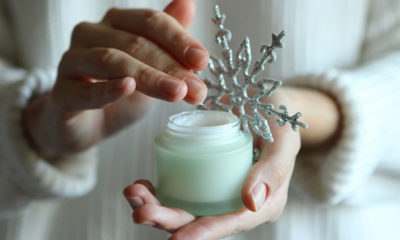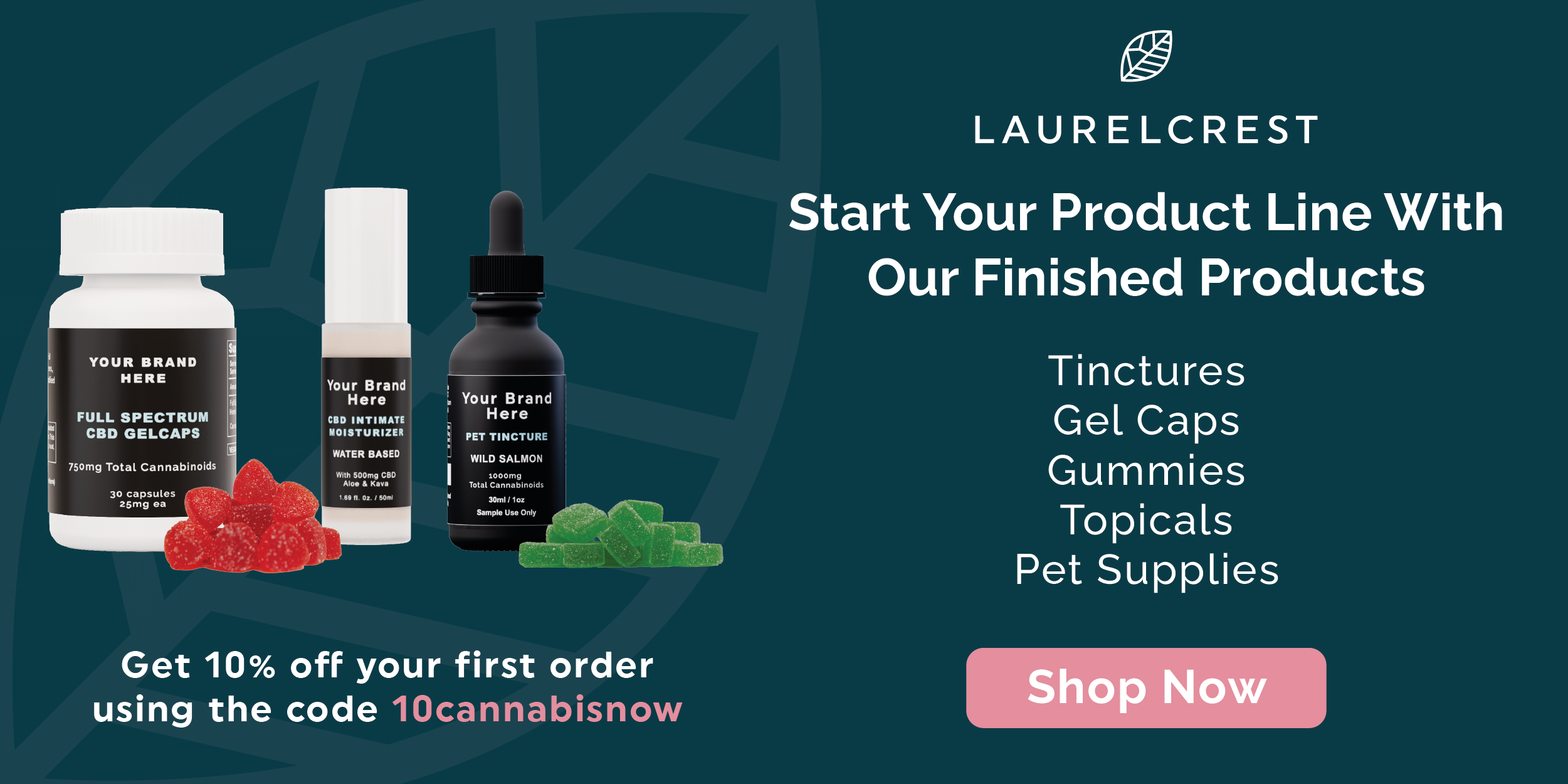
Cannabis
FDA Fails to Call Attention to Consumer Fraud in CBD Hemp Market
Over the past several years, FDA has issued several warning letters to firms that market unapproved new drugs that allegedly contain cannabidiol.
A year ago last February, the FDA sent out the first of numerous warning letters to 18 companies marketing cannabidiol (CBD) products.
The letters that the companies received allege that they are marketing their products to cure or treat diseases, in other words, as drugs, without them going through the appropriate approval process. Some of these companies were selling to humans, others to animals and some selling to both. Interestingly, the letters do not mention a much bigger issue with the products, that many contained no CBD at all and few (if any) contained remotely close to the advertised amount, even the media missed this detail at the time. The only CBD product the FDA found to have more than 2 percent CBD was Canna-Pet MaxCBD Capsules for Dogs, with a whopping 2.5 percent CBD, at the price of $37.99 for a mere 10 pills.
According to FDA spokesman, Jeff Ventura, “the FDA has not approved any drug product containing cannabidiol, for any indication, meaning none of these products have been determined by FDA to be safe or effective for their intended indications.” The reason for the letters is because the “FDA has grown concerned at the proliferation of therapeutic claims being made about an increasing number of products, for sale in all 50 states, purporting to contain cannabidiol,” especially when the “marketing and promotional materials for many of these products indicate they are intended for the use in the diagnosis, cure, mitigation, treatment, or prevention of diseases.”
This year the FDA sent out letters to 22 companies, none of them were repeats from last year. The letters were very similar to the previous batch, stating that CBD was not able to be marketed as a dietary supplement and was clearly a drug. Where the letters differed, was that these new letters brought up Investigational New Drug applications and GW Pharmaceutical’s “investigations regarding Sativex and Epidiolex.” The 2016 letters also issued a challenge to the cannabis community, specifically the companies in question. The “FDA is not aware of any evidence that would call into question its current conclusion that CBD products are excluded from the dietary supplement definition… but you may present FDA with any evidence that has bearing on this issue.” In other words, show us your research and if we like it maybe we will change out minds.
Just like in 2015, the majority of products tested didn’t have remotely close to the advertised levels of CBD. Only one product actually had the advertised level of CBD, which was PainBomb’s iHempCBD Filtered CBD Hemp Oil, which had a staggering 35 percent CBD, also making it the highest tester the FDA has sent a letter to so far.
Hemp Industry Association Responds:
The Hemp Industry Association is a “non-profit trade association representing businesses, farmers, researchers and investors working with industrial hemp.” As early as 2014, the HIA was doing their best to clarify the differences between hemp oil, which is oil obtained from “pressing hemp seeds that contain low levels of CBD, typically less than 25 parts per million (ppm),” and CBD oils which is an oil that is very rich in CBD (150,000 ppm) and can be derived from either hemp or marijuana cultivars of the cannabis plant. For the HIA, this was personal, and goes back to a 2001 showdown with the DEA where they attempted to “ban import and commerce of hemp seed and oil food” by “claiming these food products where controlled Schedule I substances.”
The HIA was able to successfully sue the DEA, “unequivocally establishing hemp seed, oil and protein as entirely legal to import, process, sell and consume in the U.S.” The HIA, understandably, is a bit upset at these new companies joining the party late and threatening to upset the apple cart by claiming something is what it is not, that is, that CBD-oil is nothing more than already legal hemp oil. That said, the HIA embraces Section 7606 of the Farm Bill which allows access to hemp for research purposes and defines hemp as having less than 0.3 percent THC, they just want the distribution and marketing done legally and responsibly (as any trade association would).
After last year’s letters the HIA, in partnership with Americans for Safe Access, issued guidelines on the “Best Practices for Regulation, Labeling and Manufacturing of Medicinal Cannabis and Hemp Products” to try and mitigate the second barrage of letters we just saw this year. In response to this year’s letters, the HIA had this to say:
“It is the position of the HIA that legal hemp products containing CBD were marketed as foods and dietary supplements long before cannabidiol formulations were submitted to the FDA for testing as a ‘new drug.’ As such, CBD products are exempt from laws that preclude CBDs from product status as dietary supplements pending ‘new drug’ approval by the FDA.”
Paige Figi Weighs in For Charlotte’s Web Hemp Products
Paige Figi is the mother of Charlotte Figi, the girl made famous by Dr. Sanjay Gupta’s three part TV series, “Weed,” for her use of a CBD-rich strain of cannabis to treat her epileptic seizures caused by Dravet syndrome. Last year, US News spoke to Paige Figi about the 2015 crackdown, who was “extremely encouraged that they’re taking a look at this from the consumer point of view of safety.” For Figi, consumer safety is paramount, “that’s exactly what I stand for and what I want.”
The CBD-rich strain which Charlotte has been using, called Charlotte’s Web, is distributed by the for-profit CW Botanicals (formerly the Stanley Brothers Social Enterprises), and their non-profit affiliate The Realm of Caring (RoC). Presently, CW Botanicals and the RoC distribute their medicine to nine states and internationally to Poland and the United Kingdom and all Charlotte’s Web hemp products are tested by a third party, independent lab before being sold. Charlotte’s Web is no longer just one strain, as “several phenotypic strains” now exist “which have low enough THC to be considered hemp,” rather than meeting the government’s definition of hemp as set out in Section 7606 of the Farm Bill. This implies that there are phenotypes that may, and likely do, have higher amounts of THC, crossing the line to become Charlotte’s Web cannabis plants; but like anyone trying to responsibly grow CBD-rich medicine, these recessive phenotypes will get culled rather than grown out.
Robert Hoban Represents Major Hemp-CBD Clients
Bob Hoban is one of the partners at the law firm Hoban & Feola, LLC, a firm which serves cannabis industry clients in 13 U.S. states and abroad, representing the largest players in the marijuana industry and many of the nation’s largest hemp producers, suppliers and manufacturers. Bob is also a member of the Colorado Department of Agriculture’s Hemp Regulation Advisory Committee, and the Department of Revenue’s MED Rulemaking Committee. Without belabouring the point, Bob is an expert of cannabis law and represents multiple hemp and CBD companies, making him a perfect person to talk to for a more in-depth understanding of the FDA’s letters.
I asked Hoban about sub-section 16 of § 802 Definitions in the Controlled Substances Act (CSA), which is seemingly broadly worded enough to include any piece, part, or molecule of the cannabis plant illegal. Hoban had some very sage wisdom, “A huge exception to the definition of marihuana, is that the stalks, the fibers, and the hurd are not considered marihuana.” Hoban mentioned the case of Hemp Industries Association vs. DEA (2003), which upheld the 9th Circuit court’s previous ruling that the CSA only applies “to synthetic THC, and that any THC occurring naturally within cannabis is banned only if it falls within the Schedule I definition of ‘marijuana.’ That Schedule I definition mentioned is sub-section 16 of the CSA that I mentioned above, which is silent regarding the hurds, stalks and fibers – meaning that anything derived from them should theoretically be legal, including THC, though only in the 9th Circuit. According to Hoban, “CBD is not defined under the CSA or anywhere in federal law, so if it is derived from stalks, fibers, and hurds it is legal.”
I brought up the issue of rampant fraud in the hemp CBD market, where a vast majority of the products questioned by the FDA actually had no CBD, despite labeling which indicated a given dose. Hoban agreed with me that this is a problem, recognizing that “the hemp CBD industry is modeling on the natural products industry, and bad actors will happen, but they come and go. It’s not acceptable, but it’s a fact.” Hoban put things very eloquently when he asked about bad actors in the CBD market, “Why would you defraud consumers, when you could do things the right way and be a successful business that helps people for decades and decades?” The FDA has a section on their website called “6 Tip-offs to Rip-offs: Don’t Fall for Health Fraud Scams,” which while not specifically mentioning CBD or cannabis is very sage advice for anyone thinking about buying hemp-derived CBD “medicine” over the Internet. For Hoban, the CBD market is “no different from the natural products industry,” and consumers need to be smart because “there are always snake oil salesman,” and absent real government regulations of the market there are few consumer protections in place.
Do you feel safe buying CBD products? Have you ever purchased a CBD product that turned out to be something different from what was advertised? Tell us about your experiences.





















